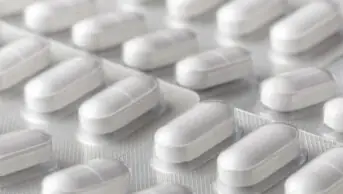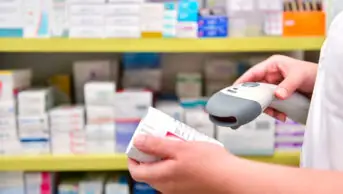
Shutterstock.com
Price concessions could cost the NHS in England an extra £26.4m in August 2022 — a higher additional monthly cost than at any other point during the COVID-19 pandemic, according to data published by government-funded researchers.
The Pharmaceutical Services Negotiating Committee (PSNC) said that the total number of concessions granted by the government has reached record levels at 138 concessions for August 2022, but added in a statement on 2 September 2022 that 39 of these were imposed by the Department of Health and Social Care (DHSC) and “do not match the purchase prices [for medicines] reported by contractors”.
Researchers at OpenPrescribing, a project run by the University of Oxford and funded by NHS England, analysed monthly prescribing data published by NHS Business Services Authority alongside concession prices granted by the government to estimate the additional cost of medicines to the NHS.
Price concessions are granted for generic medicines when pharmacists are unable to source them at the price listed in the Drug Tariff. If a price concession is in place for a drug, the pharmacy contractors will be reimbursed at the concessionary price rather than the Drug Tariff’s listed price.
Using the latest available prescribing data for June 2022, OpenPrescribing estimates that the concession prices granted in August 2022 will cost the NHS an additional £26,384,891.
This is the highest additional cost since the start of the COVID-19 pandemic in March 2020, when the cost previously peaked at £25,442,930 in April 2020.
Concession prices relating to alendronic acid 70mg tablets are expected to contribute the most to the additional cost in August 2022. These are listed on the Drug Tariff at £0.68, but were granted a concession price of £13.20 that month, owing to a supply shortage, which OpenPrescribing estimates could cost an extra £5,808,443.
Over the past 12 months, OpenPrescribing estimates that price concessions have cost NHS England an additional £107,030,000.
The Department of Health and Social Care (DHSC) added 139 drugs to the price concession list in August 2022, including four formulations of aripiprazole, used to treat symptoms of schizophrenia.
The College of Mental Health Pharmacy previously told The Pharmaceutical Journal that a shortage of aripiprazole tablets across the UK had left healthcare professionals and patients struggling to fulfil prescriptions.
In February 2022, the Pharmaceutical Services Negotiating Committee told The Pharmaceutical Journal that medicine supply issues were behind a rise in generic medicines prices. It attributed the supply issues to COVID-19-related staff absences, changes in trading post-Brexit and increases in oil prices.
Commenting on the latest cost estimates, Leyla Hannbeck, chief executive of the Association of Independent Multiple Pharmacies (AIMp), said: “The system is broken and it is leaving pharmacies out of pocket”.
“The problem is, as well, that higher prices mean that the already financially-stretched pharmacies cannot afford to buy these because they are not being compensated for the price they pay for these medicines,” she said.
“For example, a pack of a common drug such as temazepam now costs a [pharmacy] over £20, but the government is only subsidising pharmacies at around £16 — so there is a loss every time this common medicine is dispensed.”
Hannbeck added that AIMp has “asked the DHSC to look into medicines shortages and higher prices, and have been saying for months that something may not be right in the medicines supply chain — leading to all these problems”.
“It needs reviewing before it’s too late for patients, particularly since winter is approaching.”
In September 2018, the House of Commons Public Accounts Committee found that NHS England had spent an additional £315m to fund higher prices for generic medicines and recommended that the government implement a plan to maintain the supply of medicine.
Janet Morrison, chief executive of the PSNC, said: “Last month saw more price concessions granted, and more imposed at prices below what PSNC had requested, than we have ever seen before: this is a grim milestone, and one which is causing chaos and very great worry for pharmacies across the country.
“We will be escalating the situation within DHSC, and we will pick this up again as part of our wider dialogue on unsustainable pressures on pharmacy when new Ministers are in place. The current system is simply not coping with the realities of a global medicines market suffering shock after shock as it operates within a growing economic crisis, but we need urgently to find ways to ensure that pharmacies are not dispensing at a loss,” she said.
- This article was updated on 5 September 2022 to add more information and comment from the Pharmaceutical Services Negotiating Committee


